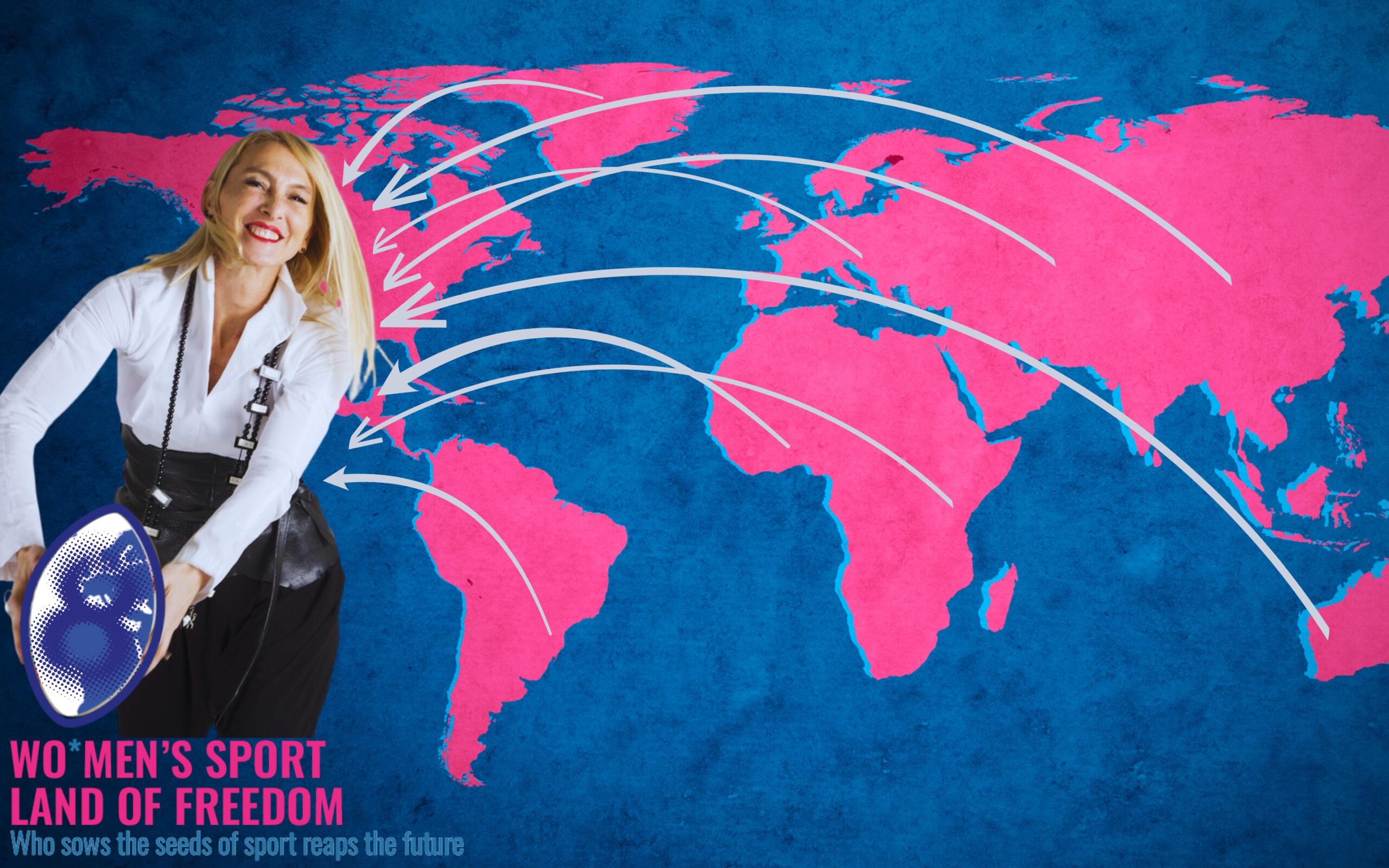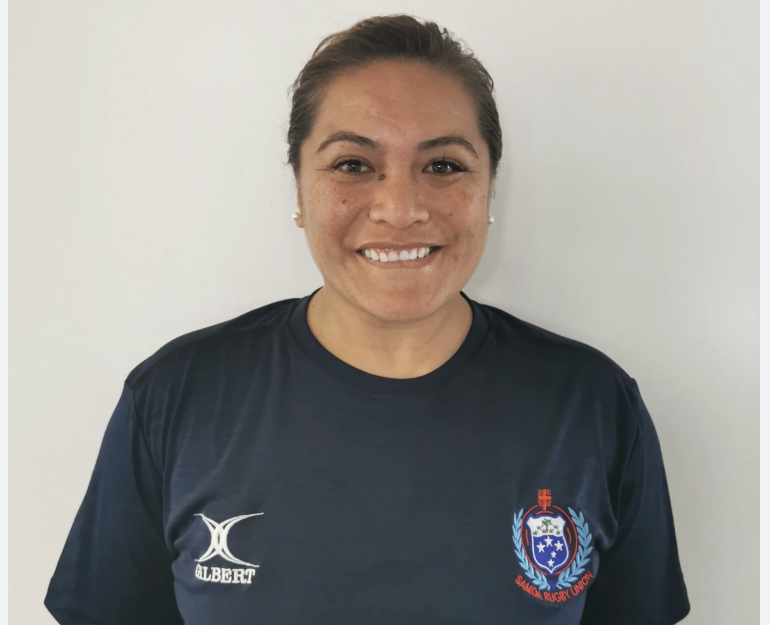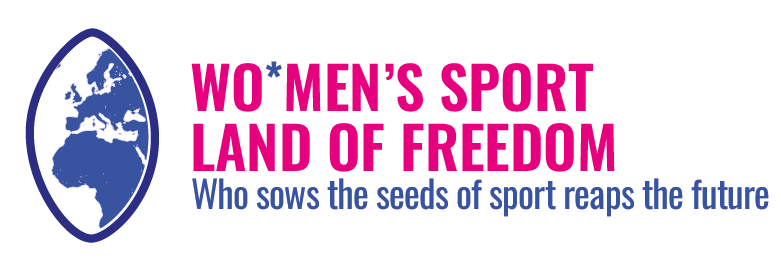
SAMOA: RUGBY TAUGHT ME TEAMWORK, DISCIPLINE, STRUCTURE, AND HOW TO ACCEPT SUCCESS AND DISAPPOINTMENT AS PART OF LIFE”
“Rugby taught me teamwork, discipline, structure, and how to accept success and disappointment as part of life.”
Ala Bakulich

Taylah Johnson

Thanks to:
Ala Bakulich
Former international Samoan player
Taylah Johnson
Oceania Rugby Executive Committee Member and World Rugby Council Member
- The history of the women’s movement in Samoa
- Testimonials
- Reading Time: 8 minutes
SAMOA - Find out more
(SOURCE: data.unwomen.org; World Bank Gender Data Portal; IPU Parline; Samoa Bureau of Statistics)
HISTORY OF THE COUNTRY
1. When did the women’s rugby movement start in your country, and what is its history? How is rugby structured in your country?
On Saturday, July 11, 1998, two women’s teams played the curtain-raiser match before Manu Samoa vs. New Zealand A at Apia Park. The two teams – the National University of Samoa and Samoa Polytechnic – were the first to officially play a women’s rugby match in Samoa, effectively marking the birth of women’s rugby in the country and of the national team: the Manusinalesoa. Within two months, the Samoa Women’s Rugby Union (SWRU) was founded. The executive committee members were: Dawn Rasmussen (President), Fauolegogo Tanielu (Vice-President), Susan Faoagali (Secretary), Alataua Tuliaupupu (Treasurer), Moana Lima (Letogo), Katie Bentin Aimaasu (Lupe o le Soaga), and Vitoria Crichton Faamaoni (Falefa). Alongside the creation of the federation, the national team name Manusinalesoā, shortened to Manusina, was officially registered. The first women’s competition was held during the “Apia King of Rugby” tournament, part of the Teuila Festival (September). Seven teams participated: Samoa Polytechnic, National University of Samoa, Apia, Vaiala Ulalei, Letogo, Lupe o le Soaga, and the Safua team from Savaii, later known as SWIRT2000 (Savaii Women’s Inaugural Rugby Team 2000). In 1999, a club competition was held under the Apia Rugby Union. Letogo won the Championship Cup, Vaiala Ulalei secured the Lee Memorial Plate, and NUS won the Round Robin Competition. Also in 1999, Samoa’s women’s national team took part for the first time in the invitational Hong Kong Women’s 7s. At that stage, the team was made up mostly of Samoan women born in New Zealand, until 2000, when local players were included. The coach was Tupai Rico Tupai, with technical advisor Lilomaiava Taufusi Salesa and team manager Treena Atoa. In 2000, women’s teams entered the Marist International 7s Tournament for the first time, with six teams: five local (Letogo, Apia, NUS, Falefa, and Vaiala) and one from New Zealand (Ulalei). On July 15, 2000, the Manusina played their first international test match at Apia Park against Japan’s Cherry Blossoms. This inaugural test, won by Japan, also served as the qualifier for the 2002 Women’s Rugby World Cup in Barcelona, where Samoa made their debut. The team was captained by Ainslie Sauvao, who also led the 2006 campaign. The Manusina returned from Barcelona with silverware, having won the Bowl and beaten Ireland, Wales, and Kazakhstan along the way. In 2002, they played the FORU Tri-Nations in Tonga against Fiji and the hosts, winning both matches. This was the prelude to the 2002 Women’s Rugby World Cup in Edmonton, Canada. Samoa also qualified for the 2006 World Cup in Edmonton and for the 2014 World Cup in Paris. As of 2025, the team is coached by Mataafa Ramsey Tomokino and captained by Sui Pauaraisa, both in charge since 2019. In recent years, the Manusina have achieved several successes, including winning the Oceania Championship and multiple runner-up finishes. The current setup is notable for having numerous former internationals in the management team, including Puna Tia (Team Manager), Cynthia Taala (Assistant Coach), Silei Poluliulegaga (Assistant Coach), Ala Bakulich née Leavasa (Physiotherapist), and Bella Milo (Technical Advisor). There are currently 6 women’s clubs.
2. In your opinion, what can rugby give to women in your country?
Rugby provides multiple opportunities for our women, both as players and in non-playing roles. It inspires women to pursue their dreams and aspirations, helping them become the best version of themselves.
JOURNEYS THROUGH RUGBY (Ala Bakulich and Taylah Johnson)>
1. When did you start playing rugby and how did you discover it?
Ala: Rugby has been part of my life since childhood.
Taylah: I started at age 11. There were no girls’ teams, so I was the only girl playing with boys for many years. Once I reached Year 11 (around age 15), I could no longer play with boys and had to stop at my local club. I then started a girls’ team at my school with my dad as head coach, and the programme has thrived ever since. Dad played 7s and 15s for Manu Samoa and later coached. I spent most weekends and evenings at the field, filling water bottles, collecting cones or rugby balls — it was time with my dad and I loved it.
2. What has rugby taught you that has had an impact on your daily life? Can you give an example of when a rugby mindset was useful to you?
Ala: Rugby taught me teamwork, discipline, structure, and how to accept success and disappointment as part of life.
Taylah: Rugby taught me to treat people with respect. It’s a physical game with high excitement and emotion, but you must respect the time and effort people invest — their bodies, training and commitment. It taught me to work well with others from very different backgrounds and lifestyles; it builds incredible bonds. Rugby is inclusive — there’s a position for every body type and tendency. Training and post-match gatherings are inherently social. In leadership roles I always consider how to include different stakeholders and weigh the impact on everyone — seeing the big picture helps decisions serve all.
3. Can you give me three words that connect rugby with freedom?
Ala: Camaraderie, sisterhood, resilience.
Taylah: Rugby is liberating!
4. What does it mean to you to live in a land of freedom?
Ala: It means being able to coexist with people from all walks of life.
Taylah: Being able to act with autonomy and not be unfairly discriminated against.
5. What is a quote that guides your life?
Taylah: “O le ala i le pule o le tautua.” — a Samoan proverb meaning “the path to leadership is through service.”
